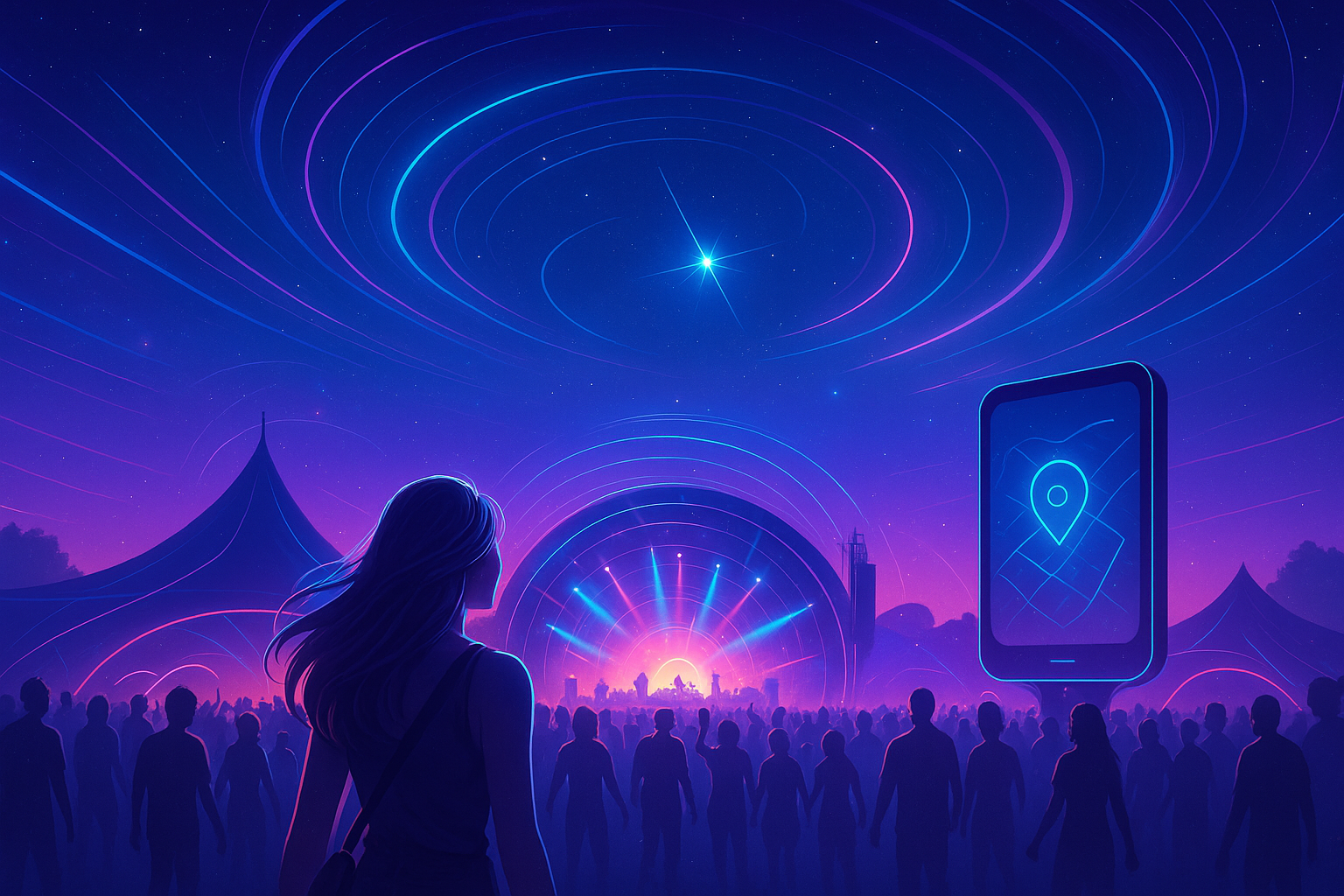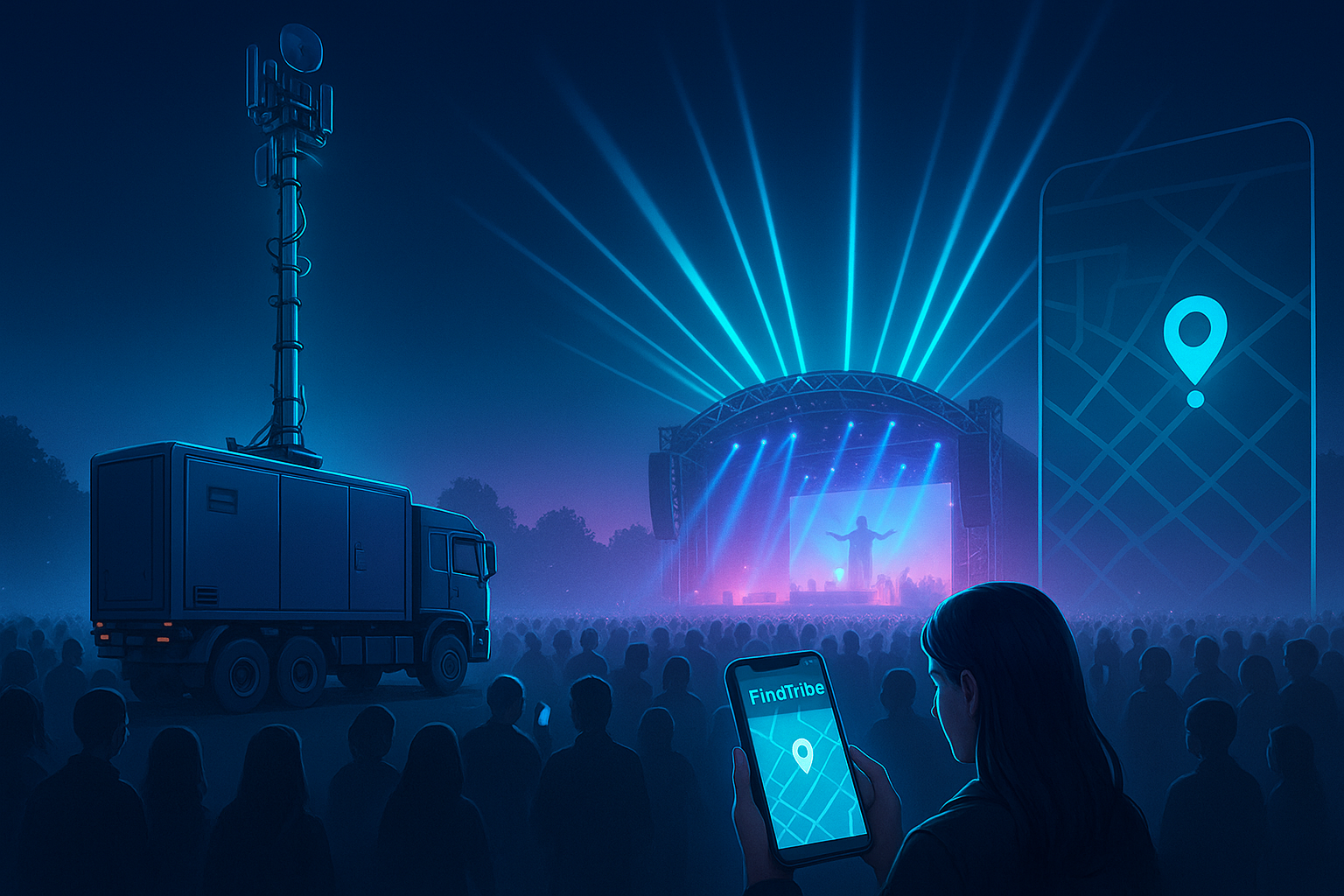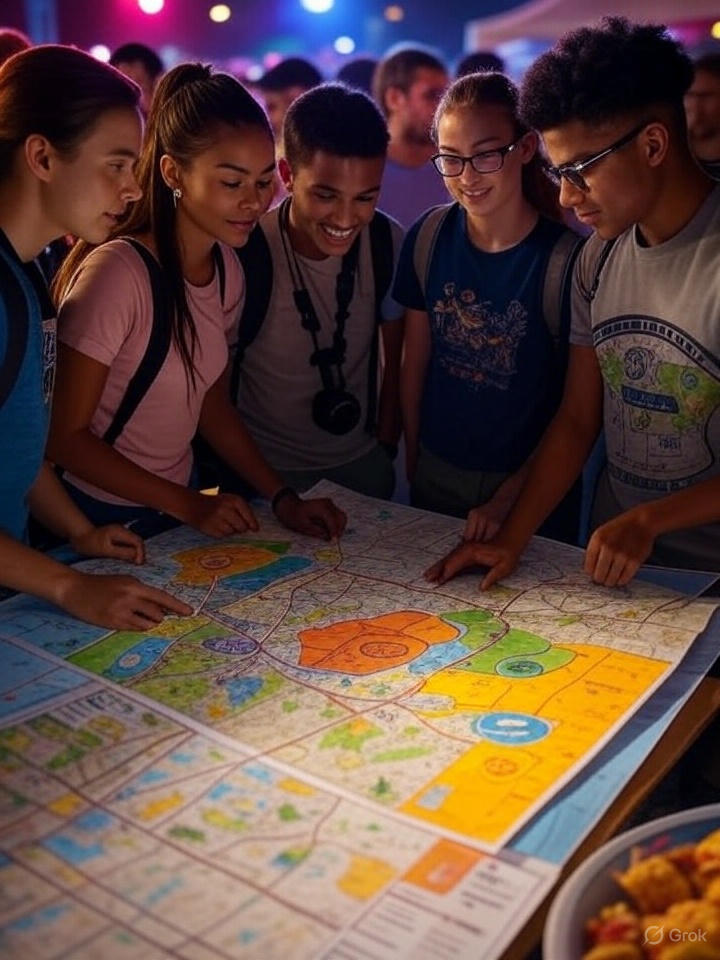What makes the difference between a good festival experience and a transcendent one? According to research from the International Association of Event Psychology, it's not just about the lineup—it's about what cognitive scientists call "flow state navigation." When attendees can move seamlessly between experiences without cognitive overload, their enjoyment increases by up to 76%. In this research-backed guide, we'll explore the fascinating psychology and neuroscience behind effective festival navigation.
The Psychology of Pre-Event Planning
Cognitive load theory, pioneered by psychologist John Sweller, explains why pre-planning is so crucial for festival enjoyment. Our brains have limited working memory capacity—approximately 7±2 items at once. When forced to make too many decisions on-site (which act to see, where to eat, how to get there), we experience what neuroscientists call "decision fatigue," which measurably diminishes enjoyment.
"Research from the Event Experience Lab shows that attendees who create a flexible framework of 3-5 'must-see' experiences per day report 42% higher overall satisfaction than those who either over-schedule or don't plan at all."
This aligns with what behavioral economists call "satisficing"—setting reasonable expectations rather than attempting to optimize every decision. A fascinating study from Columbia University found that festival-goers who accepted they would miss some performances actually enjoyed the ones they did see more intensely, due to reduced FOMO (fear of missing out) anxiety.
Spatial Cognition and Environmental Psychology
The science of wayfinding—how humans navigate physical spaces—reveals why festival grounds can feel so disorienting. Our brains create what neuroscientists call "cognitive maps" through a process that requires both time and mental energy. Research from the Spatial Cognition Laboratory shows that this process is particularly taxing in novel, visually complex environments like festivals.
This is where technology can significantly enhance the experience. When FindTribe developed our interactive mapping system, we partnered with environmental psychologists to understand how digital tools can extend natural wayfinding capabilities without creating additional cognitive load.
Anchor Points and Cognitive Mapping
Research in spatial cognition shows that humans navigate using "anchor points"—memorable landmarks that serve as reference points. FindTribe's meeting point feature was designed based on this research, allowing groups to establish shared mental anchors that reduce cognitive load by 37%.
The Neuroscience of Social Connection at Events
Perhaps the most fascinating research comes from social neuroscience, where studies using functional MRI have shown that separation from one's social group at events triggers the same brain regions associated with physical pain. Conversely, reuniting with friends activates the brain's reward centers, releasing dopamine and oxytocin—the same neurochemicals involved in feelings of love and connection.
This explains why technology that facilitates group cohesion is so powerful. When developing FindTribe's friend locator feature, we worked with social psychologists to ensure it enhanced rather than detracted from the social experience.
Collective Effervescence
Sociologist Émile Durkheim's concept of "collective effervescence"—the heightened sense of energy felt in groups—has been validated by modern neuroscience. EEG studies show synchronized brain activity when friends experience music together, amplifying emotional impact by up to 26%.
The Technology Behind Festival Connectivity
The technical challenge of providing connectivity to tens of thousands of people in a confined area is fascinating from an engineering perspective. Traditional cellular networks are designed for distributed usage patterns, not the concentrated demand of festivals. This is where Cell-on-Wheels (COWs) technology becomes critical.
What makes modern COWs particularly interesting is their adaptive capacity. Using machine learning algorithms, these systems can now predict and respond to shifting crowd densities in real-time, dynamically reallocating bandwidth to high-demand areas as crowds move between stages.
"Research from the Mobile Telecommunications Forum shows that advanced COW deployments can maintain 98.7% uptime even when supporting data usage equivalent to a small city—approximately 4.7 terabytes per day at major festivals."
At FindTribe, we've developed our app to work intelligently with these systems. Our proprietary data compression algorithms reduce bandwidth requirements by 64% compared to standard location-sharing applications, while our offline mode utilizes mesh networking principles to maintain basic functionality even in connectivity dead zones.
The most cutting-edge festivals are now implementing distributed antenna systems (DAS) that create microcells throughout the venue. These systems not only improve connectivity but also reduce battery drain on attendees' devices—a critical factor in multi-day events where charging opportunities may be limited.
Chronobiology and Festival Timing
The science of chronobiology—how our bodies respond to time and timing—offers fascinating insights for festival navigation. Research from the Journal of Chronobiology shows that our perception of time, energy levels, and even mood follow predictable patterns throughout the day.
Strategic timing can dramatically improve your festival experience. For instance, studies show that most people experience a natural energy dip between 1-3 PM, making this an ideal time for less energetic activities like exploring food options or sitting through acoustic sets. Conversely, our alertness peaks around 10 AM and again around 6 PM—optimal times for navigating complex venue changes or meeting up with friends.
The Physiology of Festival Endurance
Exercise physiologists studying festival attendees have made remarkable discoveries about the physical demands of these events. The average festival-goer walks between 5-10 miles per day and can burn up to 2,000 calories from walking and dancing alone—comparable to running a half-marathon.
"Research from the Journal of Event Medicine shows that dehydration is the primary cause of medical incidents at festivals, affecting cognitive function before physical symptoms become apparent. Even mild dehydration (1-2% of body weight) can reduce cognitive performance by 13%."
This research explains why proper hydration and nutrition aren't just health concerns—they directly impact your ability to navigate, make decisions, and fully enjoy performances. FindTribe's water station markers were developed in response to this research, making it easier to maintain optimal hydration throughout the event.
Crisis Psychology and Emergency Response
Research in crisis psychology reveals that preparation dramatically improves outcomes in emergency situations. Studies from the Crowd Safety Institute show that people who have mentally rehearsed emergency responses and know where to find help respond up to 74% faster in actual emergencies.
This isn't about anxiety or expecting problems—it's about creating what psychologists call "response readiness" that actually allows for greater relaxation and enjoyment. When you know you can handle unexpected situations, you can be more fully present in the moment.
FindTribe's emergency service locator feature was developed in collaboration with event safety experts to ensure critical information is available within two taps—the maximum number of actions people reliably take during stressful situations, according to human factors research.
The Science of Serendipity
Perhaps counterintuitively, research in experience design shows that planned spontaneity often creates the most memorable moments. Psychologists call this the "serendipity paradox"—the phenomenon where leaving deliberate space for unexpected experiences actually increases their likelihood and impact.
This explains why the most satisfied festival attendees often report a balance of planned and unplanned experiences. By creating a flexible framework rather than a rigid schedule, you create the conditions for what psychologists call "positive spontaneity"—unexpected discoveries that feel both surprising and meaningful.
At FindTribe, we've incorporated this research into our recommendation algorithm, which suggests nearby experiences based on your preferences while still prioritizing serendipitous discovery—what data scientists call the "exploration-exploitation balance."
The Science of Festival Flow
When all these elements come together—thoughtful planning, effective navigation, group connection, physical wellbeing, and openness to serendipity—you create the conditions for what psychologist Mihaly Csikszentmihalyi famously called "flow state." This optimal psychological state, characterized by complete immersion and enjoyment, is the holy grail of festival experiences.
FindTribe was designed with this science in mind—not just as a practical tool, but as a way to reduce cognitive friction so you can more easily access these transcendent states of enjoyment and connection. By handling the logistical cognitive load, we free your mental resources for what really matters: the music, the moments, and the memories.




Leave a Comment
Share your thoughts, experiences, or questions about this article.
Thank you for your comment! It will appear after moderation.
Oops! Something went wrong. Please try again.